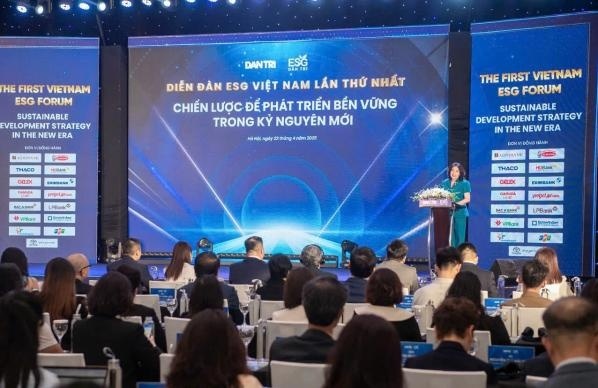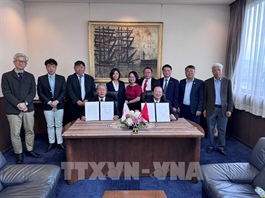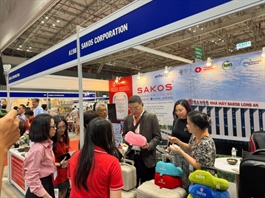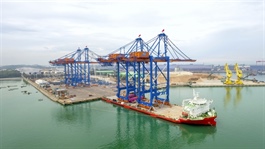Institutional strength and green talent crucial to Vietnam’s ESG progress
Institutional strength and green talent crucial to Vietnam’s ESG progress
At Dan Tri's first Vietnam ESG Forum, experts called for institutional reform, green investment, and workforce development to achieve sustainable growth.
The first Vietnam ESG Forum hosted by Dan Tri on April 23 in Hanoi brought together over 300 participants, including leading environmental, social, and governance experts, international organisations, and local stakeholders, to explore sustainable development strategies in a changing global landscape.
|
Speaking at the event, Deputy Minister of Home Affairs Nguyen Thi Ha noted that environmental, social, and governance (ESG) standards have become an indispensable trend globally and a vital measure of sustainable development.
“Businesses that adopt robust ESG practices will gain a competitive edge, engage investment, and build long-term credibility,” said Ha.
She outlined three key challenges for Vietnamese enterprises - especially small and medium-sized enterprises (SMEs) - in adopting ESG practices.
First, she stressed the need for tailored solutions that match the unique conditions of each business sector. Second, she addressed the urgency of building a skilled and adaptable workforce to meet the demands of a green and circular economy.
Finally, she called for placing science and technology at the core of governance and sustainable development, describing innovation as the key to resolving environmental issues, optimising resource use, and improving quality of life through eco-friendly products and services.
Nguyen Tien Huy, director of Vietnam Business Council for Sustainable Development under the Vietnam Chamber of Commerce and Industry, emphasised the importance of systemic strategic solutions to reconcile economic growth with increasing ESG and green transition pressures.
Huy proposed reorienting Vietnam’s growth model towards quality, innovation, and sustainability rather than relying on natural resources, cheap labour, and outsourced manufacturing.
“Another strategic priority is strong investment in green infrastructure and digital transformation, including expanding renewable energy, upgrading smart transportation systems, implementing advanced waste management, and using digital tools to track and manage ESG data,” he said.
Huy also called for the establishment of a unified national ESG policy framework to guide businesses in implementation and reporting, avoiding confusion caused by conflicting international standards and limited domestic guidelines.
He stressed the need for developing a “green” workforce by re-skilling current labour and integrating sustainability into education.
To support enterprises, especially SMEs, Huy suggested reforming Vietnam’s financial system to encourage green credit, sustainable bonds, and ESG investment funds, along with strengthening institutional capacity and legal enforcement to ensure policy consistency and transparency.
From a consulting perspective, Pham Minh Huong, director of Sustainability Services at Deloitte Vietnam, pointed out the challenges companies face when navigating a maze of ESG standards and regulations.
“To effectively adopt ESG practices, enterprises must clearly understand how each business activity impacts the environment and society. Only with this clarity can they identify practical, tailored solutions that truly support sustainable development,” said Huong.
Experts at the forum agreed that strengthening Vietnam’s institutional and governance capacity is the cornerstone for advancing ESG. A transparent and efficient institutional framework is essential for aligning resources - including capital, technology, and human talent - with national sustainable development goals.
A strong institutional foundation, they noted, would also boost investor confidence and support corporate ESG commitments, digital transformation, and social responsibility efforts.
- 15:14 24/04/2025




























